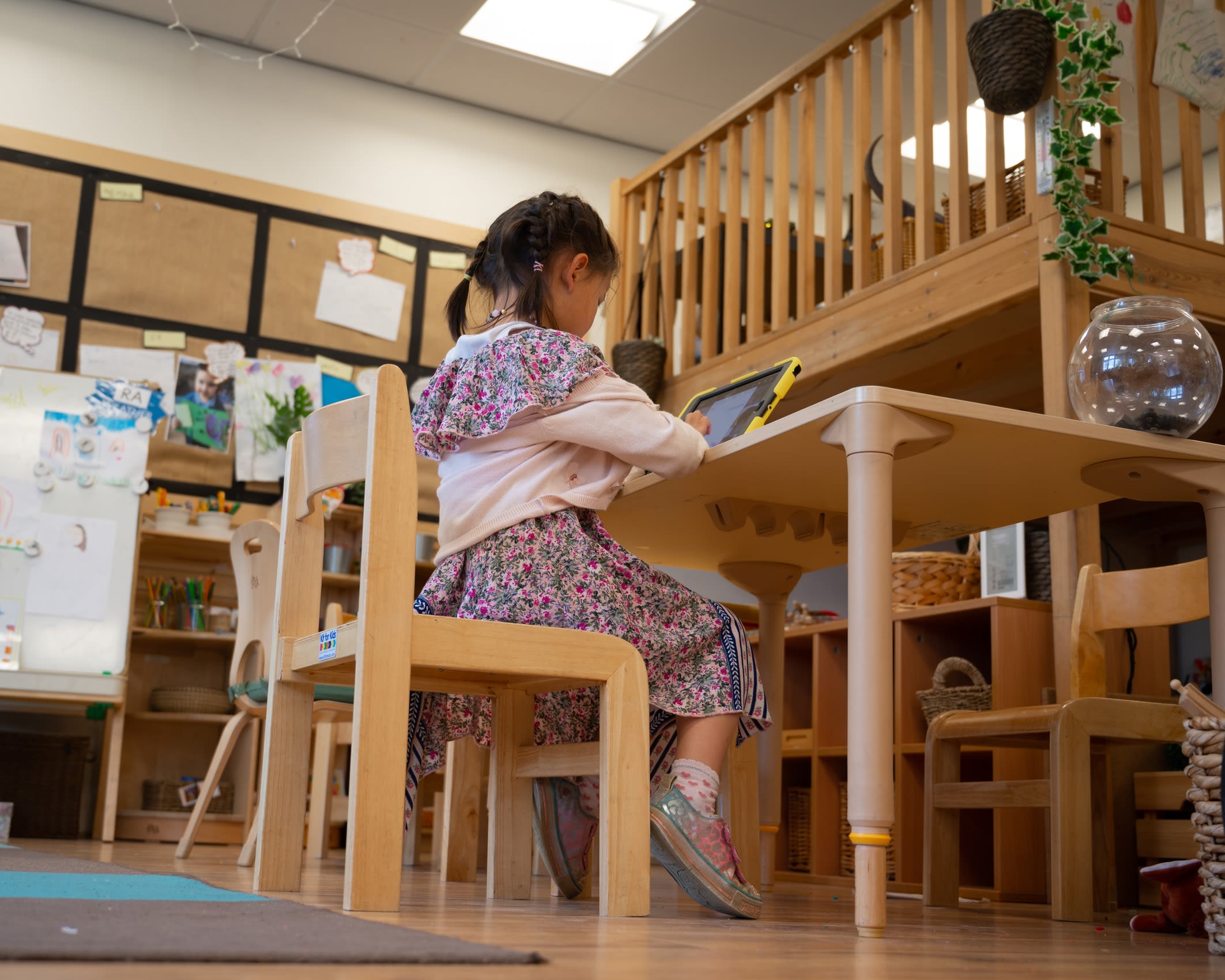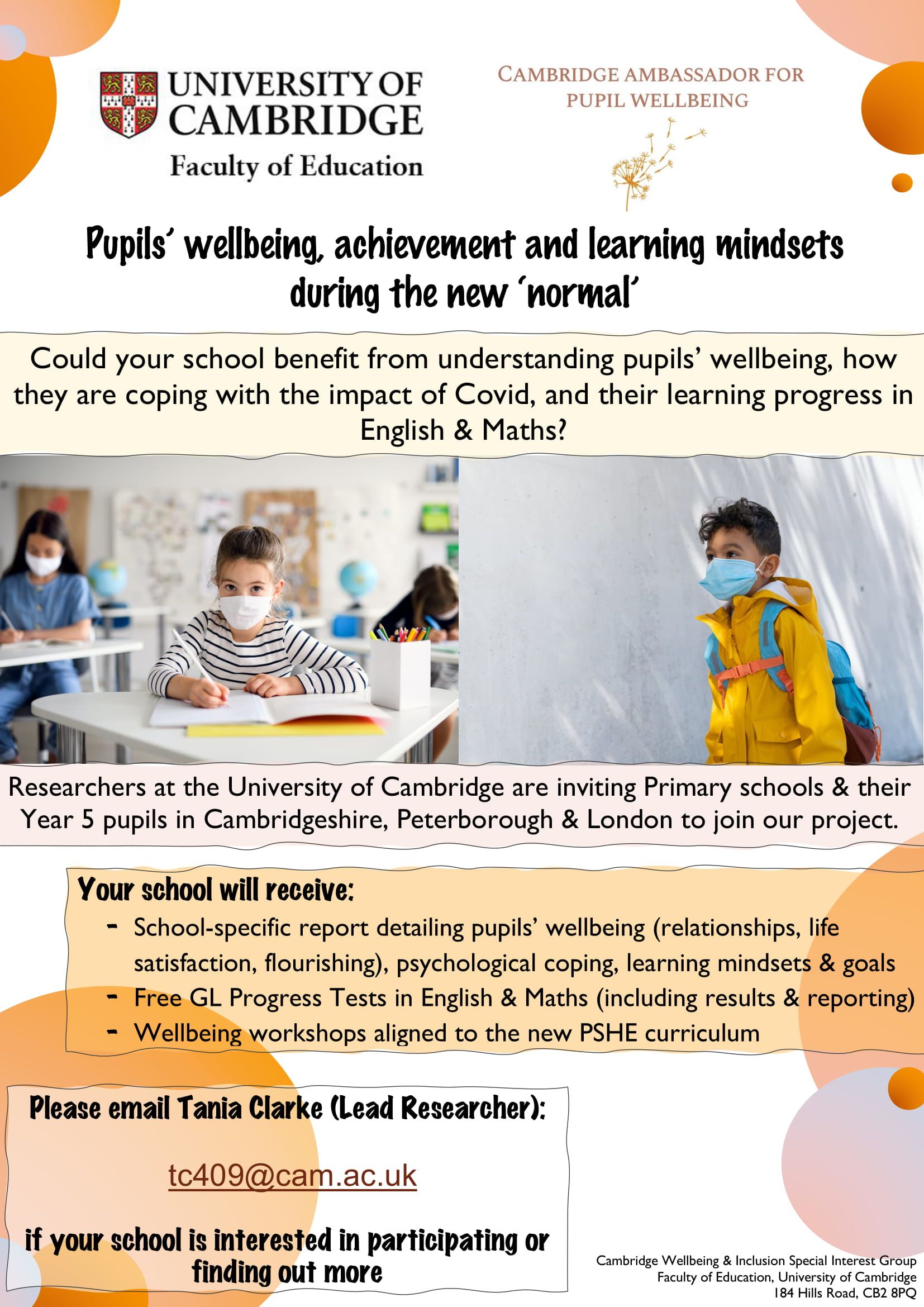

Schools wanted to join study of wellbeing and learning in the ‘new normal'

Primary schools in Cambridgeshire, Peterborough and London are being invited to join a new University of Cambridge study examining how COVID-19 has affected pupils’ wellbeing and learning as education adapts to a ‘new normal’.
The Cambridge Ambassadors for Pupil Wellbeing Project is being run by the University’s Faculty of Education. It aims to understand more about the coping mechanisms that children have developed during the pandemic, its impact on their feelings and how they function, and the implications of this for supporting their progress during the academic year.
The project is now entering its main phase following a successful pilot during full lockdown, and researchers are inviting Primary schools and their Year 5 pupils to participate. Another phase, focusing on Secondary schools, will follow in the near future.

All of the participating schools will receive detailed reports and recommendations about pupils’ wellbeing, the pandemic’s impact on their relationships, life satisfaction and flourishing, their psychological coping strategies, and their learning mindsets and goals. Pupils will also be provided with free progress tests in English and Maths, in order for teachers to gauge where they are in their learning, and schools will be provided with a detailed report and analysis of the results.
The pilot project, which ran with 32 Primary and 132 Secondary pupils, suggested that there are considerable developmental differences in how young people have coped with the lockdown. For example, Primary-age pupils commonly appeared to resort to ‘wishful thinking’ – wishing that the pandemic had never happened, or that they could turn back time. By contrast, teenagers in KS4 appeared to adopt strategies that involved resignation to the reality of the situation, social withdrawal, and seeking distractions.
Both groups appeared to be engaging in ‘cognitive restructuring’ – trying to turn negative thoughts into positives – to cope. These various approaches are all likely to have an impact on their mindset and readiness to learn as they return to school in a very different situation to that which existed before the pandemic began.
Tania Clarke, the project’s lead researcher, said: “Building on the methods used during the pilot phase, our aim now is to sample a wider range of pupils and expand the findings. In particular, listening to children’s accounts of their own experiences is vital. There is clearly a connection between how young people have handled the pandemic and its impact on their learning, and we need to understand this more so that schools are able to give appropriate support to pupils in changed circumstances that nobody would have expected a few months ago.”
“Our project is timely as, even pre-Covid, the UK Government had long recognised the need for a broader concept of education, which includes children’s wellbeing. The Government’s introduction of new statutory mental and emotional wellbeing components as part of the PSHE curriculum in Primary and Secondary schools is testament to this shift. During our pilot we worked closely with Cathy Murphy – the PSHE Lead at Cambridgeshire PSHE Service – to design wellbeing workshops for Primary and Secondary pupils, which are planned to be delivered in schools in Spring 2021.”
Primary schools anywhere in Cambridgeshire, Peterborough and London are invited to participate in the project. Schools will be required to facilitate the completion of a 30-minute questionnaire and two 60-minute standardised tests (in English and Maths) by their Year 5 pupils. The opportunity to then engage in wellbeing workshops will follow in 2021. For further details about how your school could benefit from joining, please contact Tania Clarke at tc409@cam.ac.uk